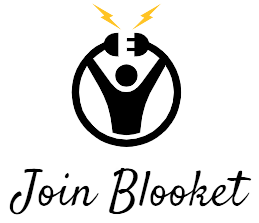Saving for retirement is a crucial financial goal, and one of the most common tools for achieving this goal is a 401(k) account. These employer-sponsored retirement accounts offer tax advantages and opportunities for long-term growth. However, when it comes to accessing the funds in your 401(k), there are rules and regulations that dictate the age at which you can withdraw without penalties. You can reach out to Beagle Financial Services to find out more.
The Basics of a 401(k)
Before delving into withdrawal rules, let’s review the basics of a 401(k) account. A 401(k) is a retirement savings plan offered by many employers in the United States. It allows employees to contribute a portion of their pre-tax income to the account, which can then be invested in a variety of financial instruments such as stocks, bonds, and mutual funds. Over time, these investments have the potential to grow, providing a source of income in retirement.
Age 59½: The Magic Number
The key age to keep in mind when it comes to 401(k) withdrawals is 59½. At this age, you become eligible to make withdrawals from your 401(k) account without incurring the usual early withdrawal penalties. Here’s what you need to know:
Penalty-Free Withdrawals
Once you reach age 59½, you can take money out of your 401(k) without paying the 10% early withdrawal penalty that typically applies to withdrawals made before this age. You’ll still need to pay income taxes on the amount you withdraw because contributions to a traditional 401(k) are made with pre-tax dollars, and withdrawals are treated as taxable income.
No Required Minimum Distributions (RMDs)
Another benefit of reaching age 59½ is that you are not required to take minimum distributions from your 401(k) account. However, if you have a traditional 401(k), you will still need to start taking RMDs at age 72, as mandated by the IRS.
Early Withdrawals: Before Age 59½
While 59½ is the age at which you can start making penalty-free withdrawals, there are some exceptions that allow you to access your 401(k) funds earlier without incurring the 10% penalty. These exceptions include:
Disability
If you become permanently disabled, you may be able to withdraw funds from your 401(k) without penalties. You’ll need to provide documentation of your disability.
Financial Hardship
In certain cases of financial hardship, you may be allowed to take an early withdrawal. However, this should be a last resort, as it can have significant tax consequences.
Substantially Equal Periodic Payments (SEPP)
You can set up a series of substantially equal periodic payments (SEPP) from your 401(k) before age 59½. However, once you start SEPP, you must continue them for at least five years or until you reach age 59½, whichever is longer.
Delaying Withdrawals: After Age 59½
While you can start making penalty-free withdrawals at age 59½, you are not required to do so. In fact, you can continue to leave your money in your 401(k) account and let it grow tax-deferred. This can be advantageous for several reasons:
Tax Deferral
Leaving your money in the 401(k) allows it to continue growing tax-deferred until you decide to make withdrawals. This can be especially beneficial if you have other sources of income during retirement.
Potential for Growth
The longer you leave your investments untouched, the more they can potentially grow. Delaying withdrawals can result in a larger nest egg for your retirement years.
Flexibility
Delaying withdrawals gives you greater flexibility in managing your retirement income. You can choose when and how much to withdraw based on your financial needs and tax situation.
Final Words
In conclusion, the age at which you can withdraw funds from your 401(k) without penalties is 59½. However, there are exceptions for early withdrawals in cases of disability, financial hardship, or SEPP. It’s essential to carefully consider your financial situation and goals when deciding when to access your 401(k) funds.
While it’s tempting to start making withdrawals as soon as you’re eligible, delaying withdrawals can offer tax advantages and the potential for greater growth. Consulting with a financial advisor can help you make informed decisions about when and how to access your 401(k) funds to ensure a secure and comfortable retirement.




